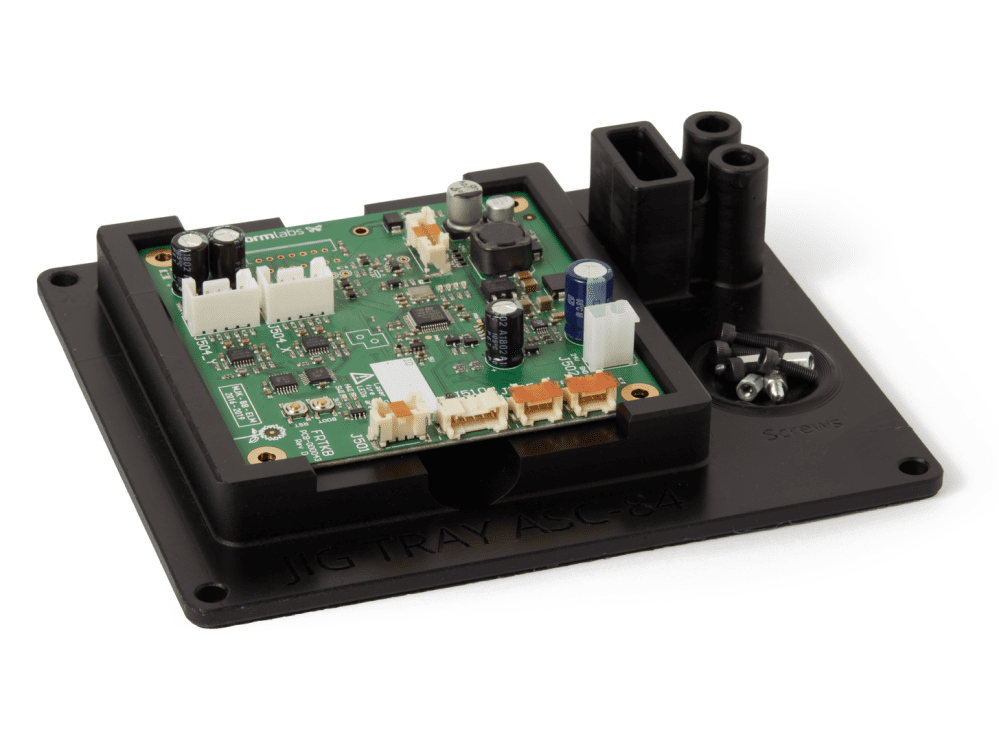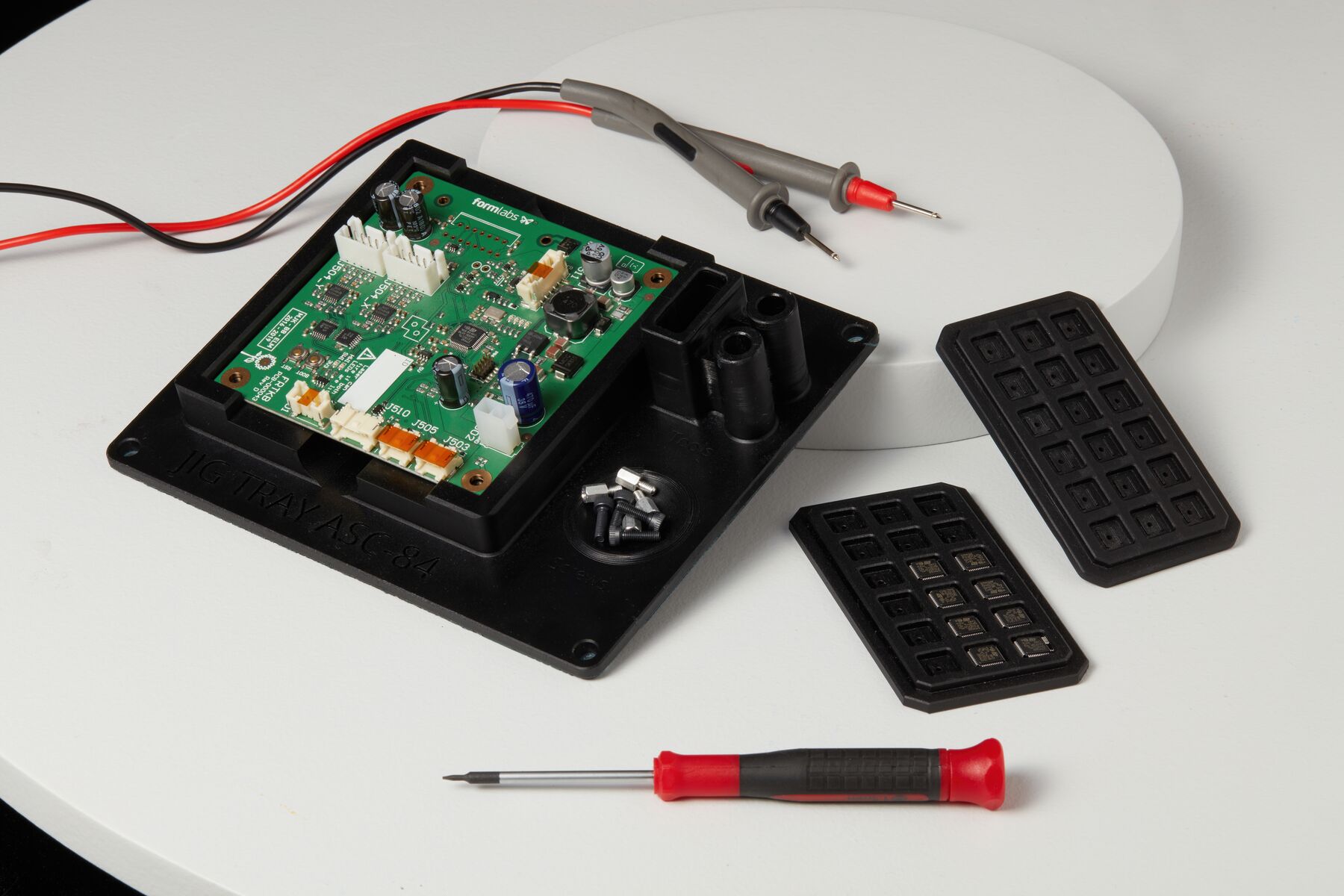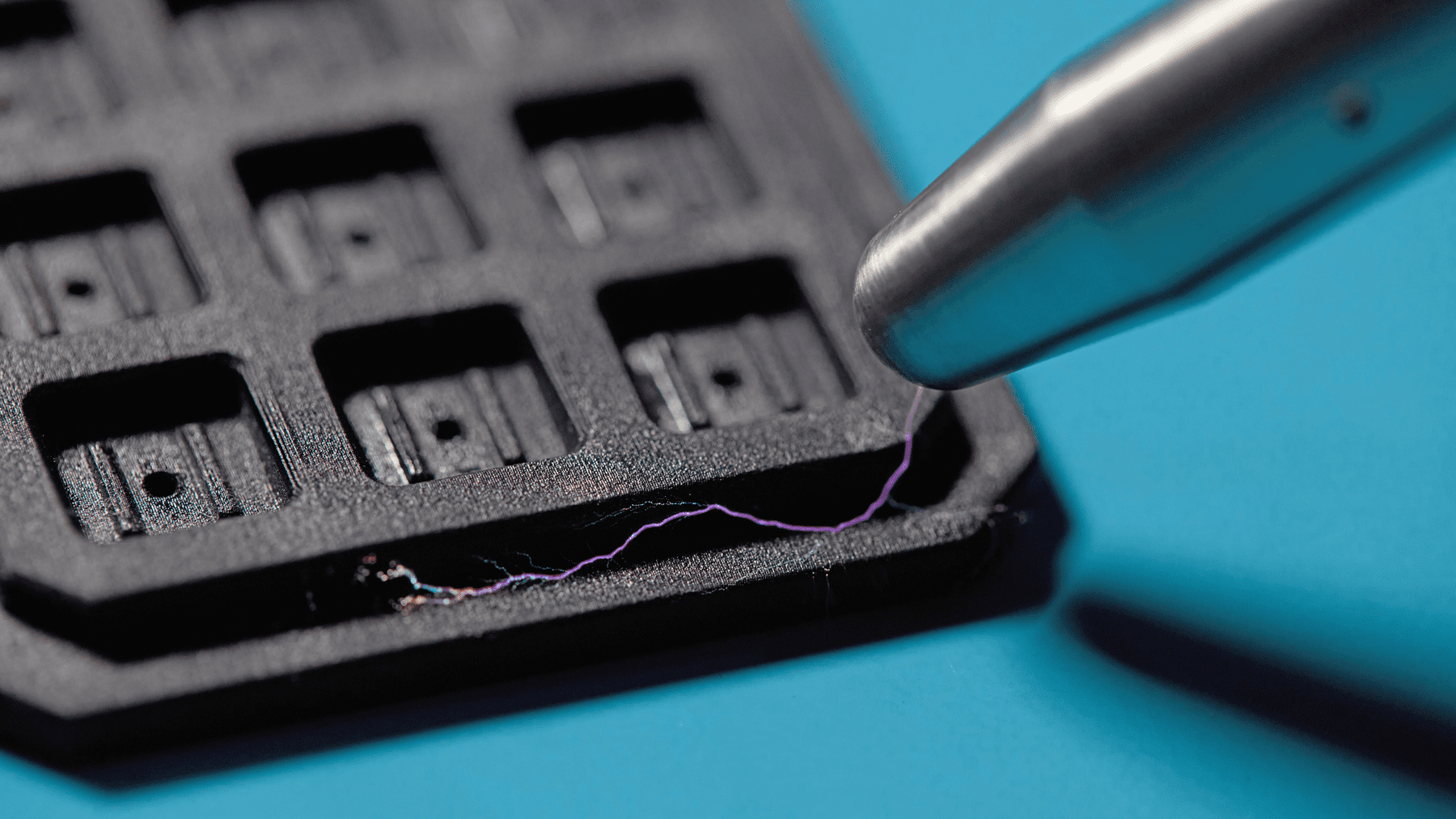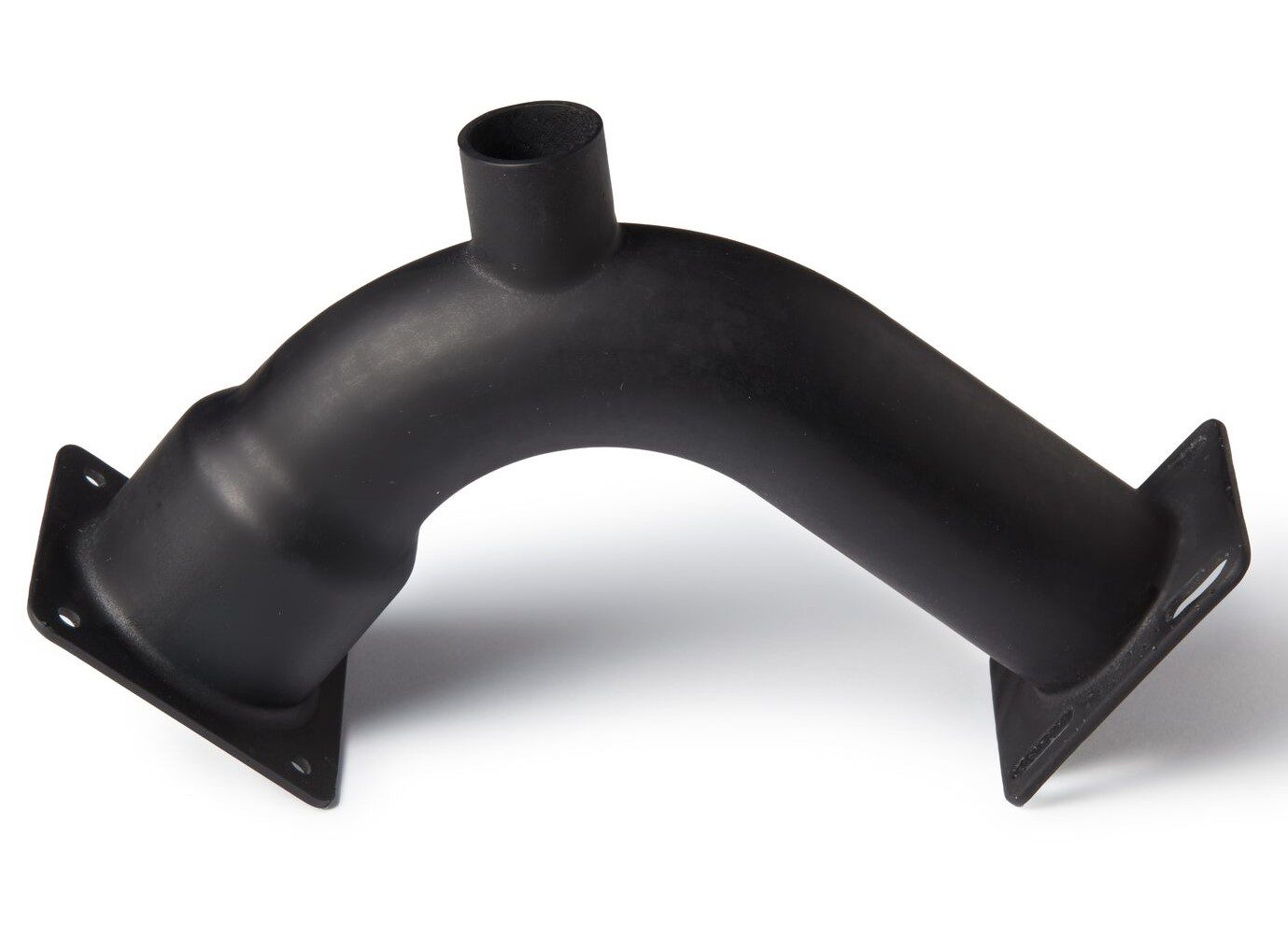Formlabs® ESD Resin

Formlabs®
ESD Resin
Improve the yield of your electronics manufacturing lines with ESD Resin
Formlabs ESD resin is an SLA 3D printing material recommended for prototyping and manufacturing custom ESD-safe production tooling, jigs and fixtures or enclosures. This material's toughness is higher than that of many other 3D printed ESD-safe materials, therefore, engineers can prototype without risk of mechanical or electrical failure.
NO electrostatic discharge with ESD 3D-printed parts
In a production setting with electrical components, ESD-safe materials are crucial. With the innovation of ESD resin printing, it’s now possible to safeguard sensitive electrical parts by channelling static electricity away. Formlabs ESD resin’s high modulus and toughness make it perfect for demanding production environments, ensuring unmatched strength and durability.

Material Performance
![]() ULTIMATE TENSILE STRENGTH
ULTIMATE TENSILE STRENGTH
44.2 MPa
![]() TENSILE MODULUS
TENSILE MODULUS
1937 GPa
![]() FLEXURAL STRENGTH
FLEXURAL STRENGTH
61.0 MPa
![]() HEAT DEFLECTION TEMPERATURE
HEAT DEFLECTION TEMPERATURE
@ 0.45 MPa: 62.2ºC
We’re Here to Help
Please do not hesitate to contact us and receive a FREE QUOTE.
If you want to speak to a LIVE PERSON – CALL 1-888-88-77686
How Formlabs ESD Resin Can Streamline Electronics Manufacturing
Knowing what electrostatic discharge might cause in a production environment, Formlabs developed the ESD resin to reduce risk and increase the yield on your manufacturing line by 3D printing custom tools, jigs, and fixtures for automotive, aerospace, and electronics manufacturing.
Static Dissipative
- Protect your critical electronics from unregulated static discharge to prevent component failures.

Applications
![]() Tooling & fixturing for electronics manufacturing
Tooling & fixturing for electronics manufacturing
 Anti-static prototype and end-use components
Anti-static prototype and end-use components
 Custom trays for component handling and storage
Custom trays for component handling and storage
Technical Specifications*
POST-CURED Values
Mechanical Properties |
Mechanical Properties
|
Flexural Properties |
Flexural Properties
|
Impact Properties |
Impact Properties
|
Thermal Properties |
Thermal PropertiesHeat Deflection Temp. @ 1.8 MPa | 54.2 °C |
Electrical Properties |
Electrical Properties
|
Physical Properties |
Physical Properties
|
*Material properties may vary based on part geometry, print orientation, print settings, temperature, and disinfection or sterilization methods used. Data for post-cured samples were measured on Type IV tensile bars printed on a Form 3 printer with 100 µm ESD Resin settings, washed in a Form Wash for 20 minutes in ≥99% Isopropyl Alcohol, and postcured at 70°C for X 60 minutes in a Form Cure.


